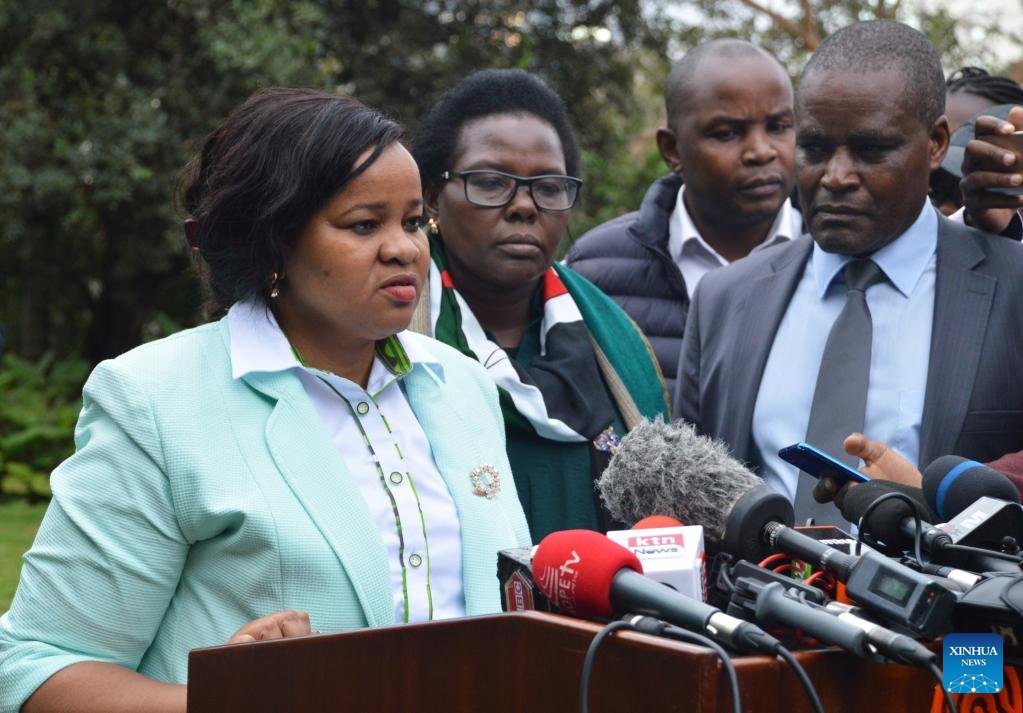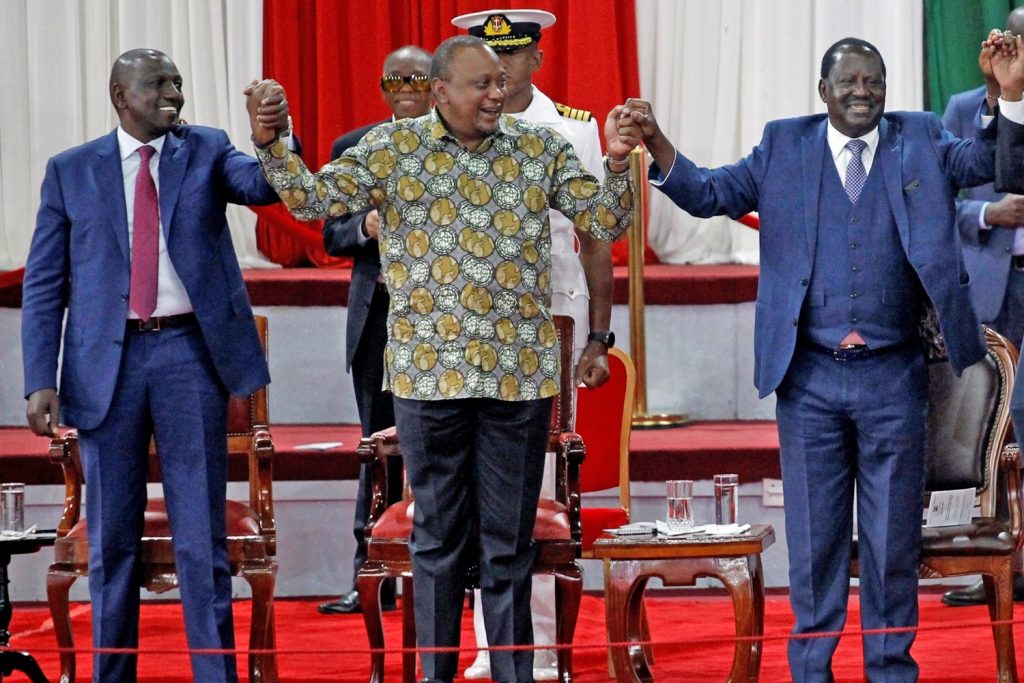What the commissioners ought to agree on is the conduct of the process, and the verification process in this case, its authenticity, transparency and general conduct.
By Ellah Katiba
The declaration of the 2022 Presidential results has left a deep rift among the commissioners who are now a divided lot that cannot agree on the results and declaration thereof.
The electoral body split into two, with the chairperson and two others on one end while the deputy chairperson and two other on the other end.
The rift follows a press conference in which four of the commissioners, spearheaded by Juliana Cherera dissociated themselves with the presidential elections results that were just about to be announced.
This whole circus has resulted to many questions especially the question on who can declare presidential results and whether this declaration by the chairperson is independent of the approval or disapproval of the other commissioners.

IEBC Chairman Wafula ChebukatiThis chaotic situation is however not new. It can be traced back to 2007 when Samuel Kivuitu, the then chairperson of Electoral Commission of Kenya (ECK) was accused by the opposition for facilitating the rigging of elections in favour of the late Mwai Kibaki who was seeking another term.
The late Kivuitu was unaware that some of his commissioners had created a parallel syndicate with returning officers behind his back, a situation that resulted in him stating that he did not know who won the election.
Now onto Article 138 (10) of the 2010 Constitution; this specific provision has gained fame overnight as it has elicited diverse interpretations it. It provides that within seven days after the presidential election, the chairperson of the Independent Electoral and Boundaries Commission shall declare the result of the election.

Juliana Cherera, IEBC VIce ChairpersonA section of Kenyans however decided to extend the section so that it continues ‘the law does not demand quorum’. Differently put, that the walkout by the four commissioners taints but does not invalidate the results, for which I agree, as far as this specific preceding statement is concerned.
Under the Second Schedule of the IEBC Act on provisions as to the conduct of the business and affairs of the commission, Clause 7 expressly states that unless a unanimous decision is reached, a decision on any matter before the Commission shall be by a majority of the members present and voting.
A renowned lawyer took to his own interpretation that a declaration of the presidential results is the sole preserve of the chairperson, and is independent of the decision of the commission as a body. This however begs the question; did the Constitution and all other relevant laws envision that the electoral process shall be the sole preserve of a single individual? I think not.

Ellah KatibaIt loses the whole essence of the existence of the commission, and the rest of the commissioners for that matter.
He further stated that the IEBC Act only envisions that decisions by majority to be in relation to the commission’s ordinary business conducted during general meetings.
One would question, what IEBC’s ordinary business is. Isn’t conduction elections and referendum at the top of the list of IEBC’s ordinary businesses?
Under the Second Schedule of the IEBC Act on provisions as to the conduct of the business and affairs of the commission, Clause 7 expressly states that unless a unanimous decision is reached, a decision on any matter before the Commission shall be by a majority of the members present and voting.
Allow me to take you back to the Maina Kiai Case which you have probably heard by now wherein the court held that “the people of Kenya did not intend to vest or concentrate such sweeping and boundless powers in one individual, the chairperson of the appellant,” for which the appellant was IEBC.
My interpretation would be that it is not only in meetings that that this section applies but also in other affairs. The section has put it that ‘a decision on any matter before the Commission’; verification of the results was a matter before the commission wasn’t it? That is left for the court to answer…

DP William Ruto, President Uhuru Kenyatta and ODM leader Raila Odinga during the launch of the BBIThe four commissioners allege that the Chairperson sidelined them towards the end of the verification process as they were not made aware of what was going on, allegations which we have no proof of.
However, if that were the case, it would be a gross misconduct as it attempts to portray the picture that aside from the chairperson, the other commissioners are only commissioners in the abstract and their role there is insignificant.
Allow me to take you back to the Maina Kiai Case which you have probably heard by now wherein the court held that “the people of Kenya did not intend to vest or concentrate such sweeping and boundless powers in one individual, the chairperson of the appellant,” for which the appellant was IEBC.
As a matter of fact, and for the sake of clarity, the commissioners have not vested their rights to the commissioners such that we shall vote but they shall decide who to declare president. No, that is not the case.
What the commissioners ought to agree on is the conduct of the process, and the verification process in this case, its authenticity, transparency and general conduct.
It is my solid opinion that the Constitution and relevant laws did not intend that the IEBC Chairperson manages the institution singlehandedly, rather, in collaboration with the other commissioners, otherwise it would defeat their presence there. Even so, clarity on these issues rests with the Supreme Court.
By Ellah Katiba, a second year law student at the University of Nairobi



